Our efforts to strengthen and enhance operational capital include operational efficiency, sustainable manufacturing and new-age technologies.
We continually upgrade technologies in our manufacturing operations that make our manufacturing facilities smarter, safer and more environmentally sustainable. Our state of the art manufacturing facilities has evolved and kept pace with advances in manufacturing technologies over the years. We are located strategically to access raw materials, supplier ecosystems and markets.
DETAILS OF EQUIPMENT AND MACHINERY
JAYA SHREE TEXTILES
Retail stores
Linen Club is the largest and famous linen fabric brand in India with expertise in linen manufacturing and design, for more than 70 years. Linen Club is the pioneer of linen in India and is now retailed through both exclusive retail outlets and multi-brand outlets. It is the largest linen retail chain in the world.
VIKRAM WOOLENS
ACRYLIC FIBRE
TAF’s manufacturing process uses the technology of aqueous suspension polymerization and wet spinning with sodium thiocyanate as a solvent. This is the safest & environment-friendly technology for Acrylic Fibre manufacturing in the world, at the highest level of productivity. The experience and expertise with this technology enables us to experiment with the recycling of fibre, dope dyeing and many such innovations and their deployment.
FY 2019-20
FY 2018-19
CAPACITY (MT)
OVERSEAS SPINNING BUSINESS
The manufacturing facilities of ABY™ are equipped with textile machinery from best in class suppliers globally. Our business is equipped with the highest levels of automation, integrated online process control systems. We follow stringent quality control procedures to give you yarn which is globally benchmarked.
ABY™ Spindle Installation Capacity Snapshot
| PT. Elegant Textile Industry | PT. Sunrise Bumi Textiles |
|
158,880 Ring spindles, 960 MVS Positions |
102,648 Ring spindles, 2800 OE Positions |
| PT. Indo Liberty Textiles | Indo Thai Synthetics |
|
161,856 Ring spindles, 4440 MVS Positions |
60,768 Ring spindles, 3840 OE Positions |
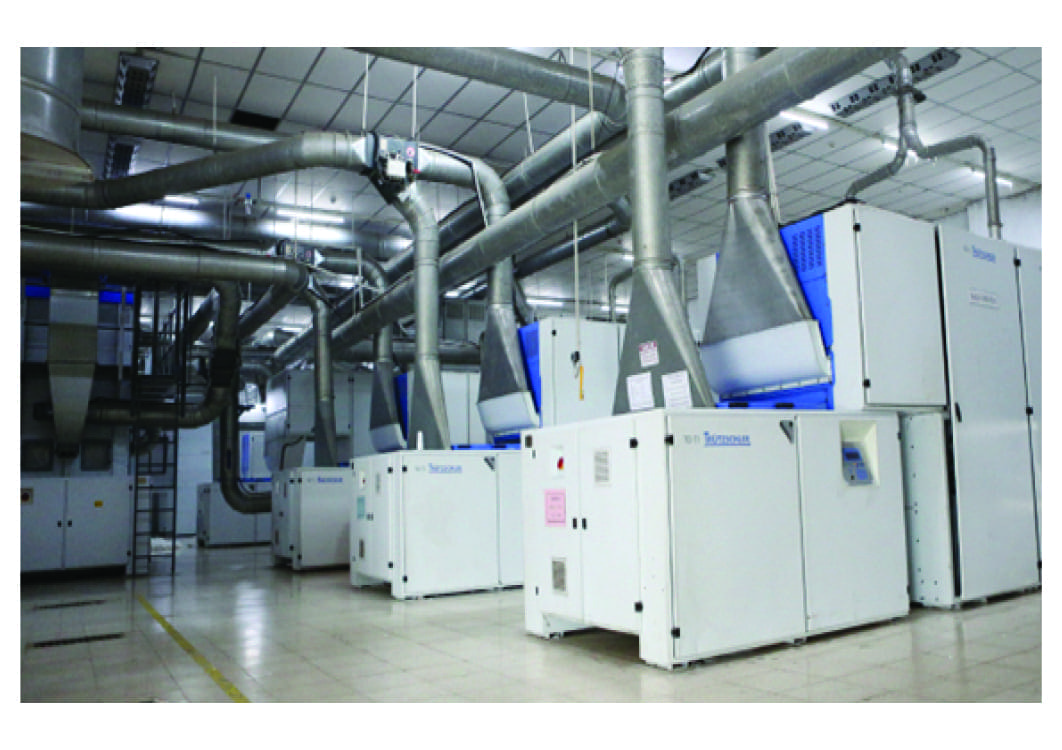
Number of Linen Club Stores:
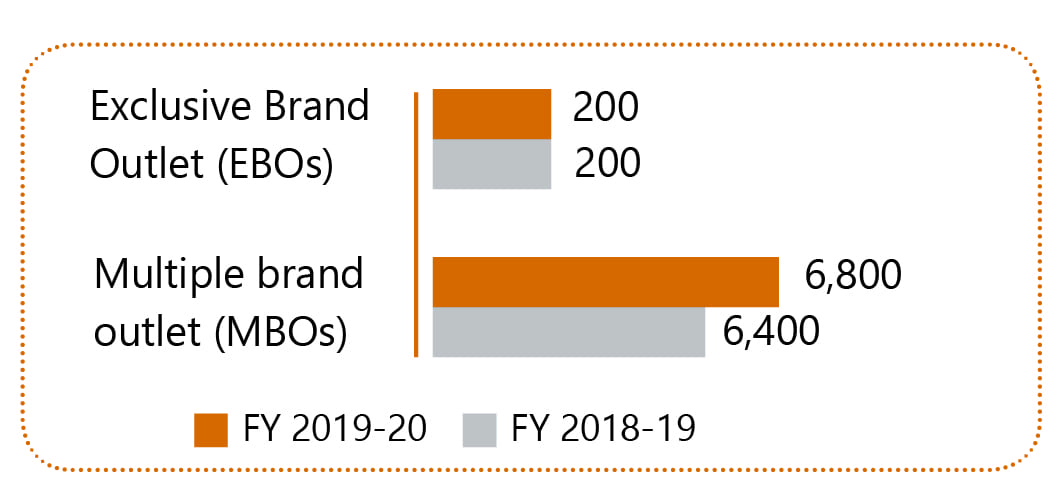
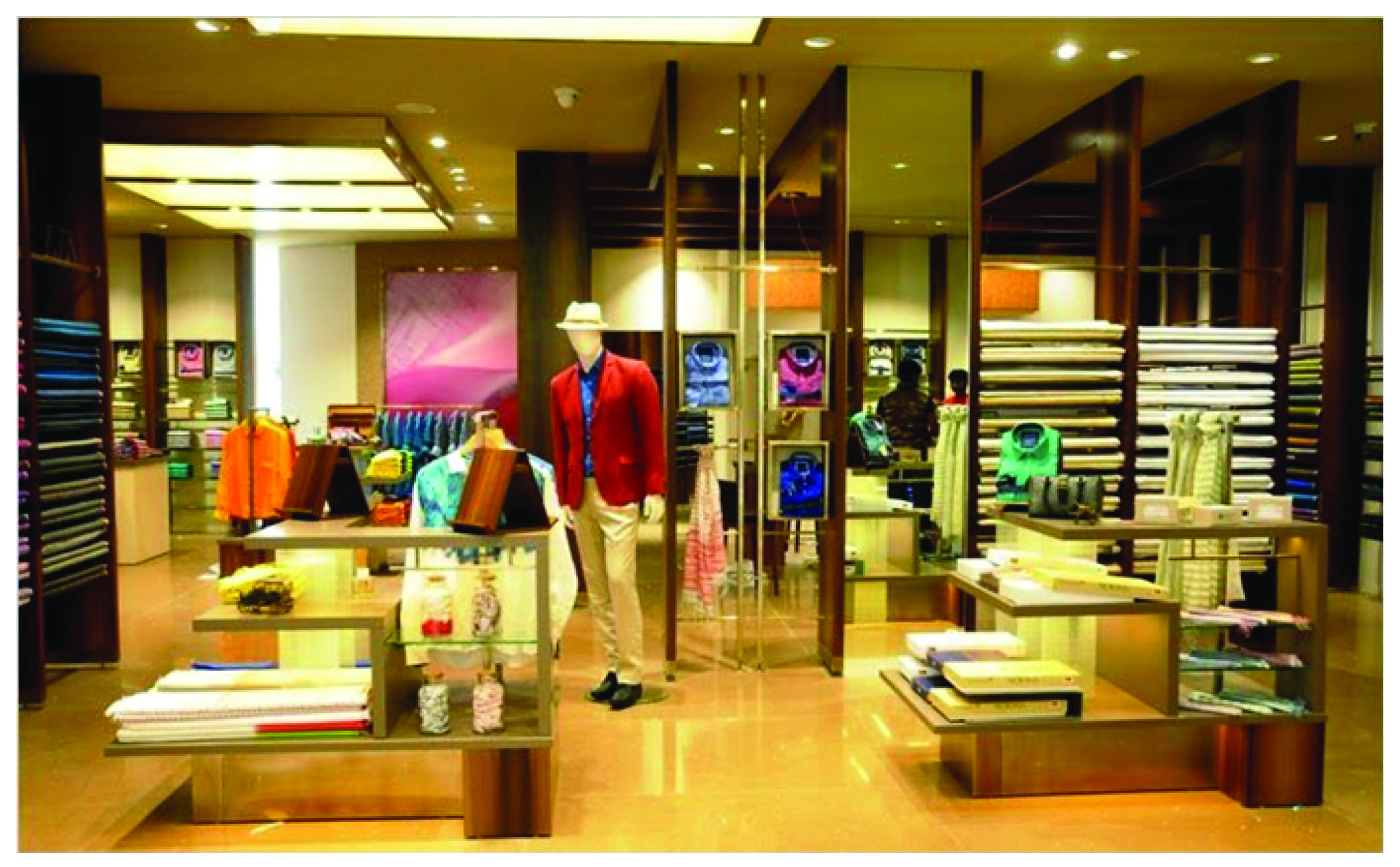
ACQUISITIONS
Our manufacturing facilities are efficient and have optimized resource consumption. Our operational excellence and inclusion of best in class technologies ensure safe, reliable and efficient operations.
VIKRAM WOOLLENS
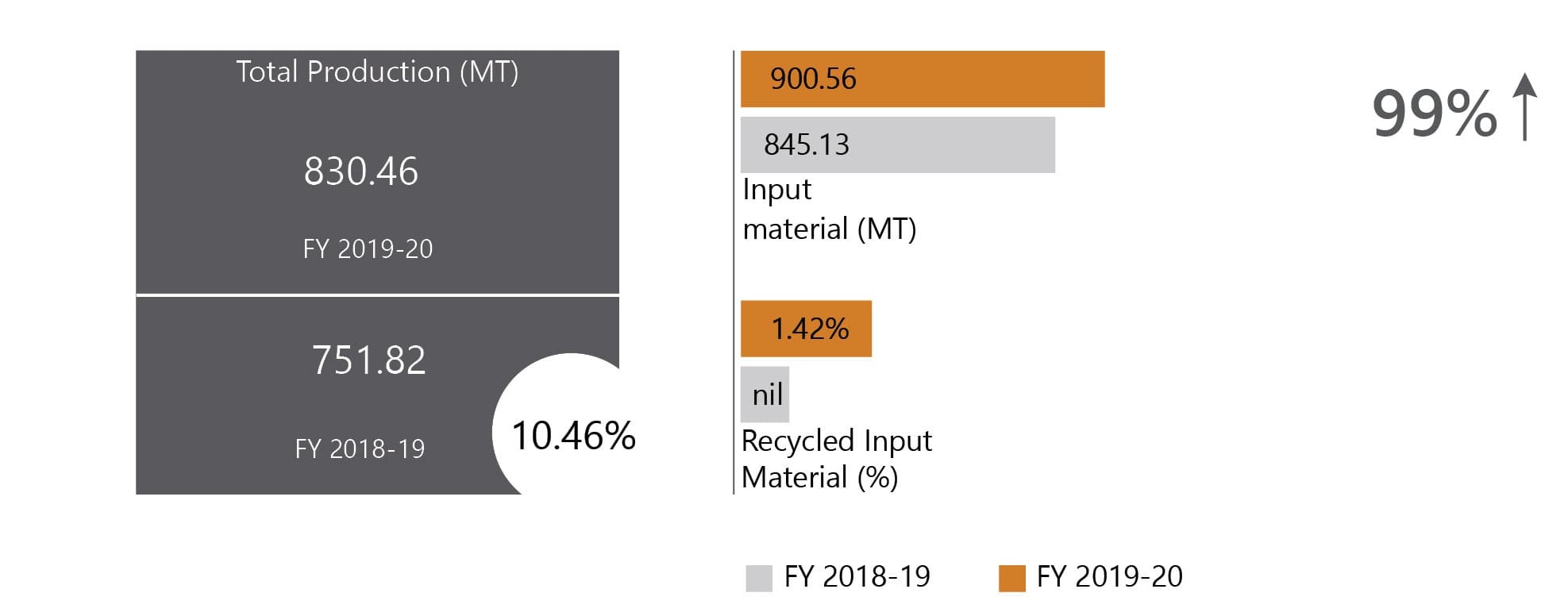
JAYA SHREE TEXTILES
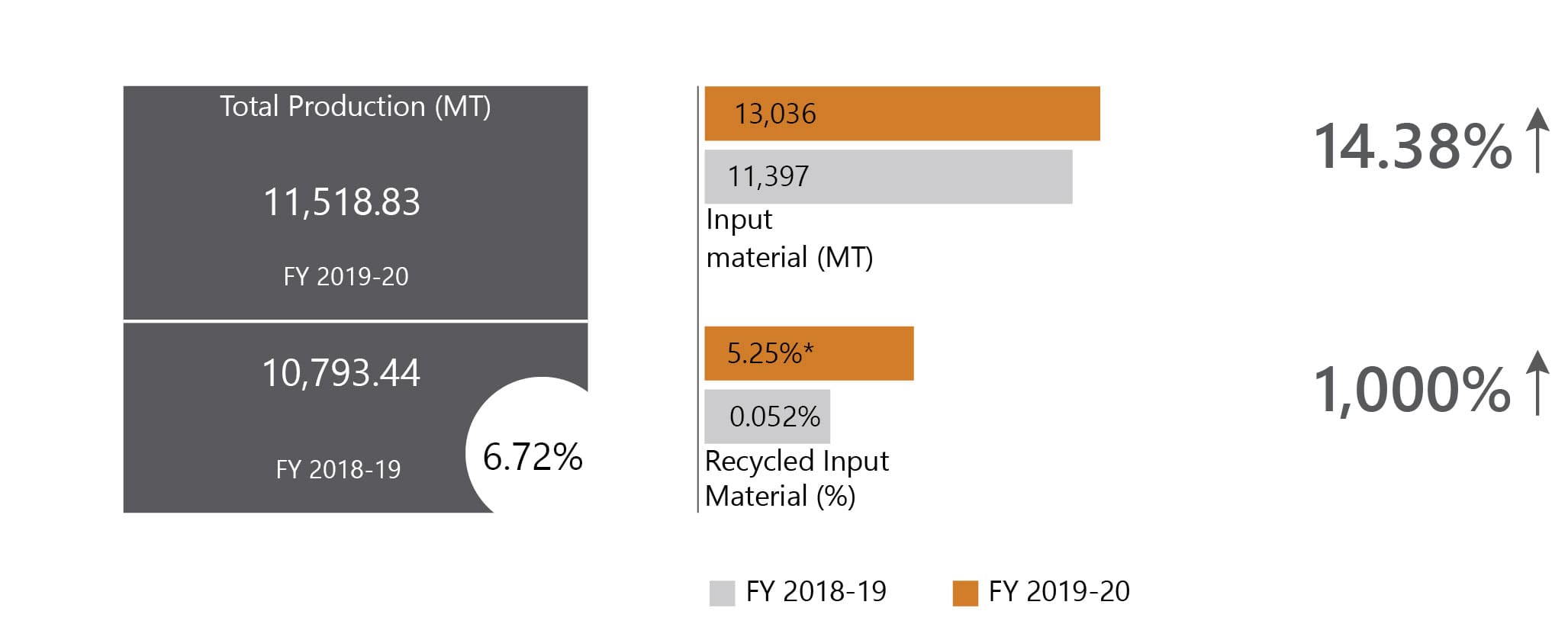
In FY 2019-20, JST started evaluating recycled input material for the product Cavallo and FY 2018-19 the recycled input material was evaluated for packaging material.
THAI ACRYLIC FIBRE
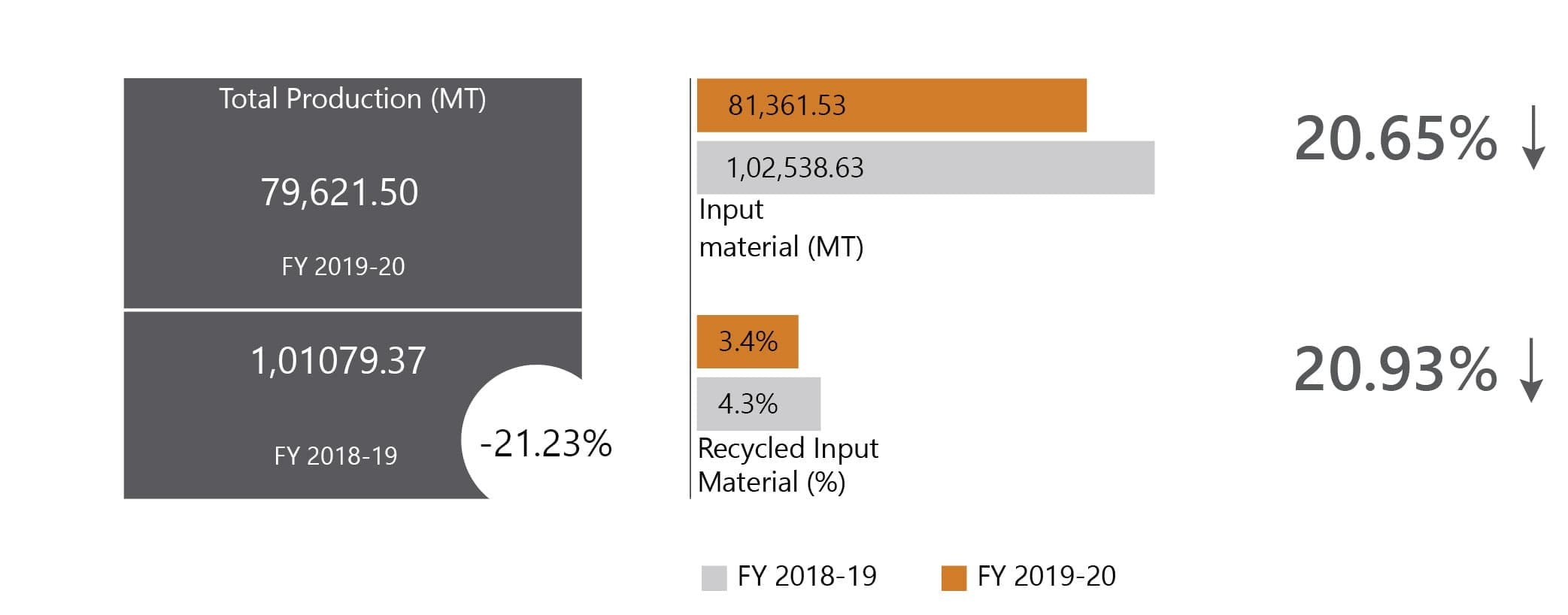
PT ELEGANT TEXTILE
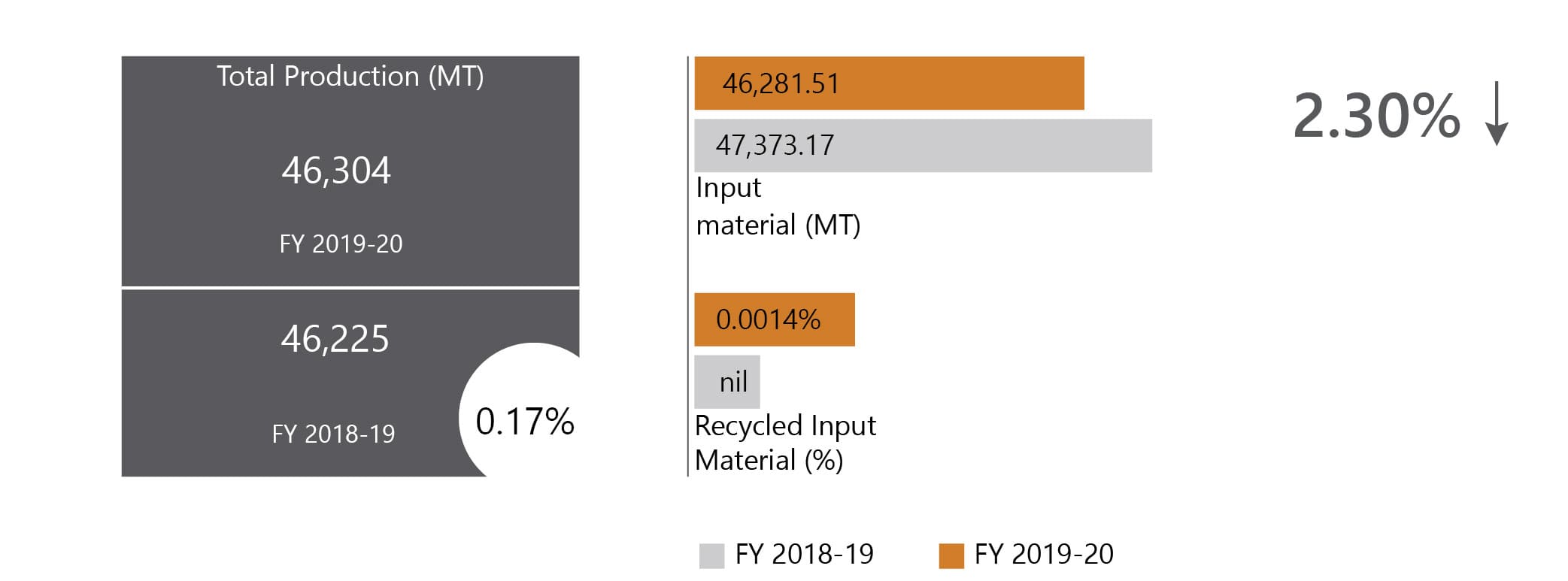
PT INDO LIBERTY TEXTILES
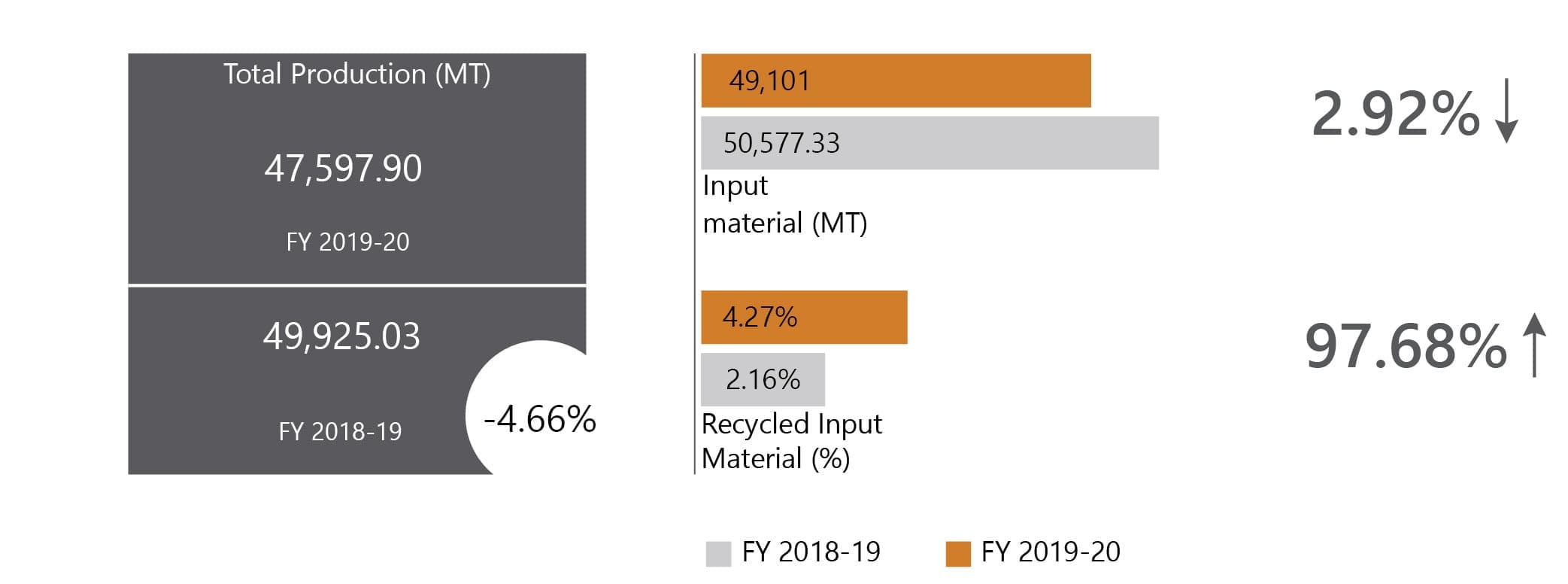
PT SUNRISE BUMI TEXTILES
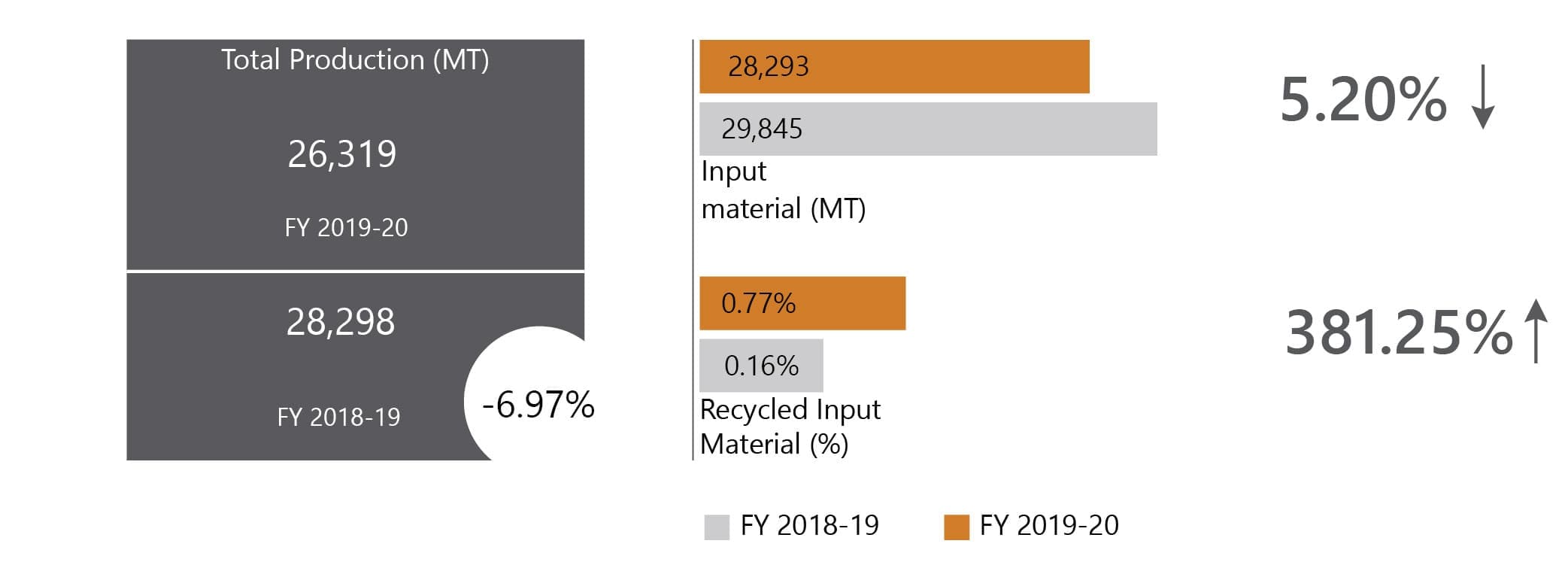
INDO THAI SYNTHETICS
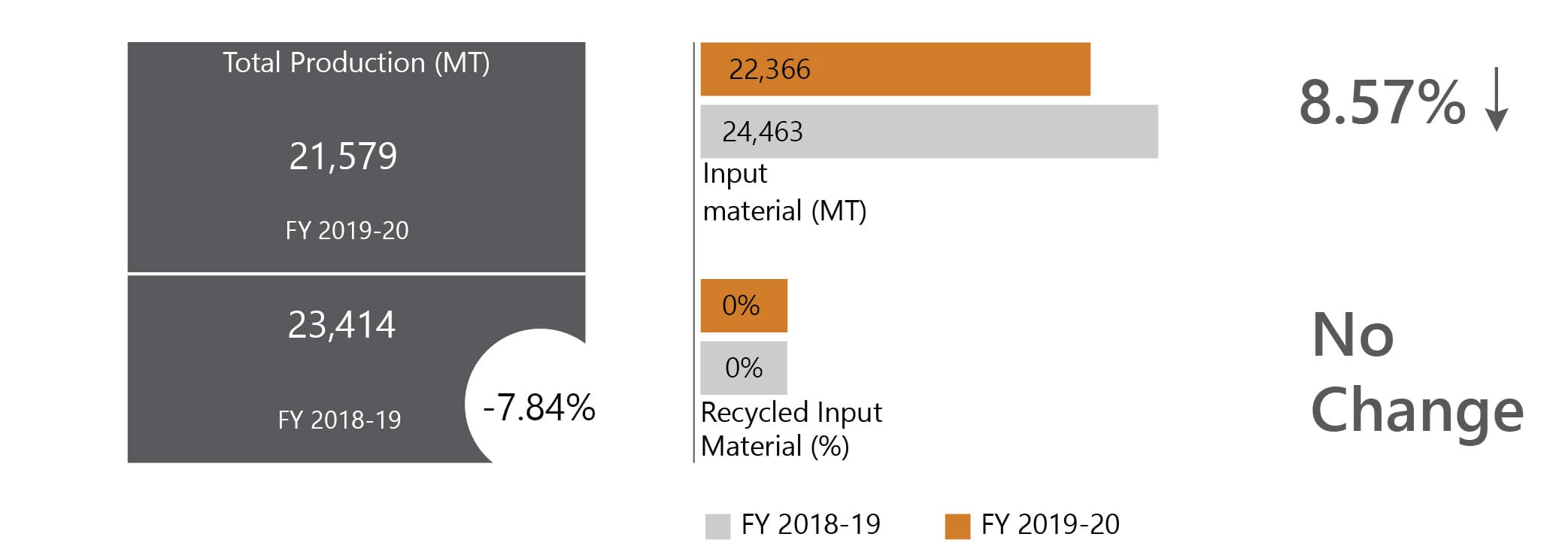
SALIENT POINTS ABOUT OUR MANUFACTURING CAPABILITIES ARE:
1. Manufacturing for market
We are slowly transforming ourselves from ‘make
to stock’ towards ‘made to order’. We explore and
understand the challenges within the market, anticipate
our customers’ needs and deliver the right content at
the right time. Our designer and R&D team has ability
to respond to consumers’ expectations.
2. Manufacturing excellence
Our manufacturing equipment and machinery provide
the best efficiency and quality. Our selection of raw
materials is diligent, and employees are well trained
technically and procedurally to undertake various
manufacturing excellence goals. Our industrial engineers/
engineer team develop the best ergonomic workplace
and conducive environment for the manufacturing
processes. Our quality system provides the best results
and minimum losses.
3. Smart Manufacturing
We have begun exploring Smart Factory Automation in
our manufacturing process. For this, we aim for Integrator
based production capacity, wherein Production units
will be coupled to sensors, followed by data collection
leading to manufacturing intelligence.
4. Predictive Maintenance
We have been following very rigorous maintenance
schedules that avoided disruptions in operations.
From the last five years, in a phased manner, we are
implementing predictive maintenance, thus reducing
unanticipated interruptions in production, improvement
in quality and asset health.
5. Manufacturing with Traceability
We have deployed the processes and systems for
traceability across the entities and capacity to extend
traceability to any given product range or batch. For
traceability in manufacturing, we assign each product or lot an identification number, the work details, inspection
results, and dimensions are linked to this identification
number in each process so that it can be utilized for
labelling a product.
6. Manufacturing for Circular economy
All our manufacturing plants have already experimented,
piloted and manufactured with the recycling of internal/
external waste as raw material to avoid virgin raw
material.
MAINTENANCE
We adhere to the best in class maintenance of our machinery and equipment. We aim to maximize the longevity of assets as well as keeping quality and stay efficient.
We do best in class preventive maintenance. Our production and engineering team meet often and undertake the survey and plan together. There is well planned scheduled maintenance resulting in minimization of breakdown. The efficacy of preventive maintenance results in a low undesirable breakdown.
We are in process of Integrating SAP, for better scheduling on a daily and monthly basis and share updates with all concerned departments.
We follow machine SOPs, recommendations and guidelines very conscientiously and adhere to predictive maintenance. We follow World-class manufacturing (WCM) and are awarded by Quality Circle, NCQC, and CCQC. JST, VW, TAF & OS are well recognized for WCM and Business Excellence. Kolhapur GPFPL is now getting integrated with the practices of ABG.
CIRCULARITY AND THE VALUE CHAIN
Aditya Birla Textile has chartered the pathway towards building its business to the model of the circular economy, transforming from a linear economy. We aim to follow circular economics principles for process and product innovation, building scalable solutions and unlocking the market potential for sustainable products. By advancing towards circular economies we strive to reduce the impact of global warming, reduced material input costs, access to new markets, decrease resource scarcity, revitalize process waste and increases the sustainability of the business.
By these initiatives, we venture towards creating thriving, resilient economies in a greener and healthy environment with restored natural resources. We are constantly adapting, innovating and developing our sustainability initiatives in line with other developments in the sector.
Our robust material management ensures conservation, use of renewable recovered and recycled material and materials with a low environmental footprint. We strive hard and put our best efforts to improve our material use efficiency.
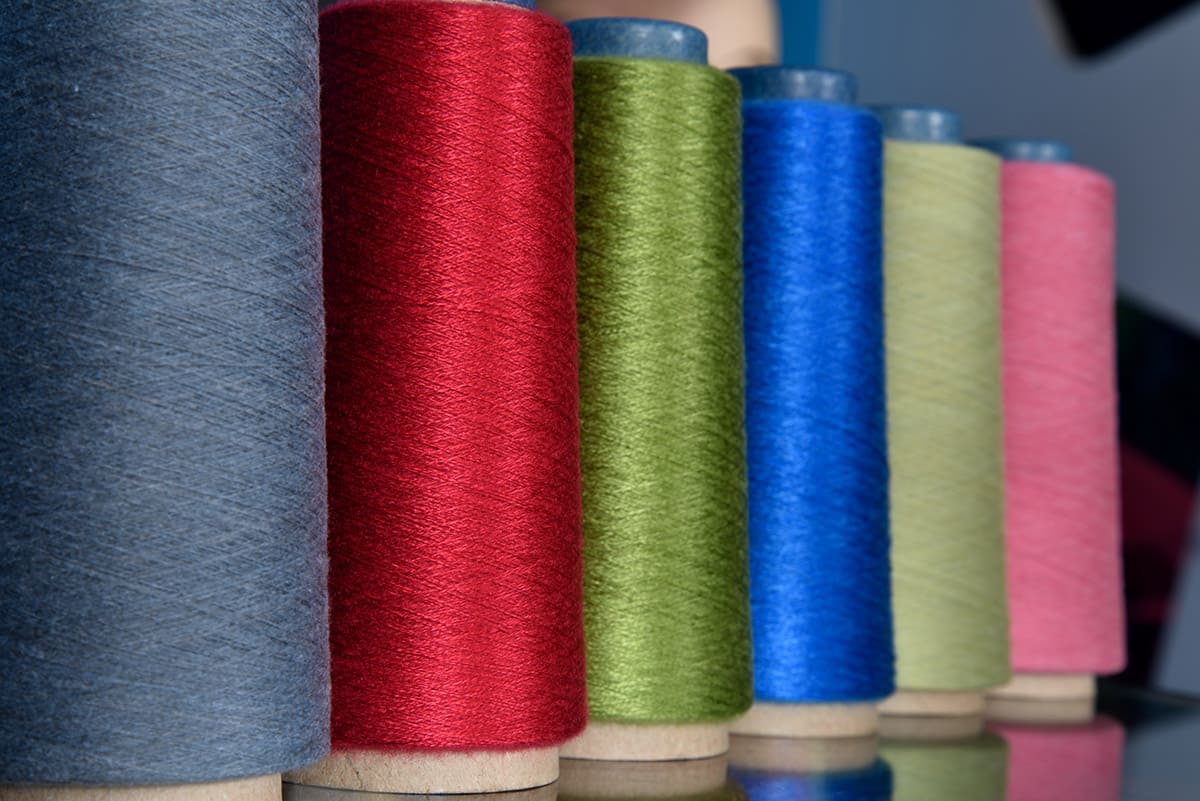


RECIRCULATION: WASTE TO WEALTH, CAVALLO BY LINEN CLUB
Cavallo by Linen Club is an upcycled sustainable product with offerings in both fabrics and apparels. Last year we had launched Mazury and Cavallo brands which are manufactured using Linen waste. The upcycling of flax waste with a 45% blend ratio of cotton, led to brilliant value-added product development. We aggressively scaled up our product to tap the opportunity in the Value for Money segment. We had conducted a series of research and trials to come up with a product for the Indian market.
This year we have scaled it on both marketing and production level. With this, we continue to maintain the quality and value of materials and resources over the long term. This value-added product created out of waste, opens up many possibilities.
To achieve the circular economy goal throughout the value chain, we also have set a new circular packaging strategy. We are advancing towards the use of alternative renewable packaging material and using waste generated during the production for packaging
ACRYLIC FABRE IS MOST SUITABLE FOR RECYCLING
Sustainability is the biggest growing trend in the textile and apparel industry with concerns on the environment coming from the consumers, Governments, the UN, NGOs and brands and retailers. As brands & retailers are under serious pressure to convert their products and processes to achieve their internal and external sustainability goals. Customers (direct and downstream) are looking at alternate fibres and technologies that can help them claim that their offering is sustainable and environmentally friendly. There is a growing perception that acrylic is not a sustainable fibre and bad for the environment as it doesn’t decompose or get recycled like polyester.
TAF R&D is in the process of developing a unique technology where 50% recycled polymer from waste will be used along with virgin polymer for a manufacturer of regular acrylic fibre. After a series of trials in the R & D pilot plant, the first bulk trial has been undertaken in the main plant. Product characteristics & processing performance evaluation are in progress for fine-tuning the process technology. Globally renowned brand has already shown interest in this sustainable product using recycle technology.
We are in the process of developing & marketing “first-of-its-kind” acrylic fibre made with recycled resources. TAF gained a significant value addition to TAF’s offering and established the “first mover advantage”.
HIGG INDEX
Developed by the Sustainable Apparel Coalition, the Higg Index is a set of tools that enables brands, retailers, and facilities` to accurately measure and score a company or product’s sustainability performance. We have been applying these tools and assessing our effort in all the units for several years.
Improving process efficiency by establishing super wash plant for Merino wool
With wool having a scaly surface, and its fibres not uniformly set, the fibres move together get entangled with one another. This process of felting increases when exposed to Warm, humid environment. So in order to stop felting in the wool, it is a dry wash, which is tedious and costly. In 2019, after the identification of the problem we set up a superwash plant that makes wool less susceptible to felting when it is washed and dried by machine. Super wash make the wool resists shrinking & felting & converts wool from dry-cleaning products to domestic /machine washable products.
Machine washable wool got us good recognition in the international market as we started servicing many international brands like Uniqlo, H&M etc. Due to this initiative we have become preferred merino wool worsted yarn suppliers globally. The process has helped us to become a preferred supplier as well as it has opened new business opportunities for us. It has initiated the exploration of new product application, cater sustainable product needs, as well as it leads to Value-added product growth.
During FY 2019-20, we produced 800MT wool and blended yarns with the help of a superwash facility at JST